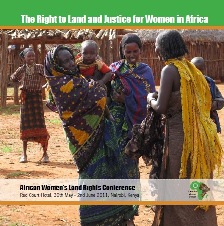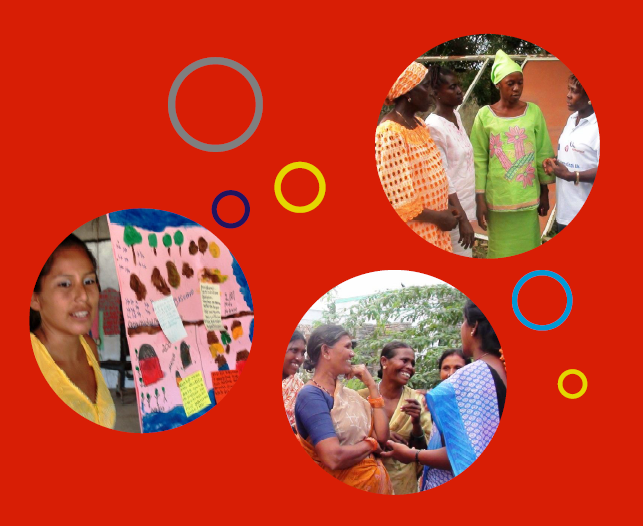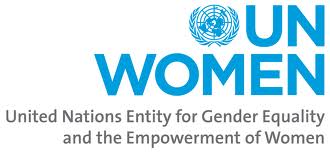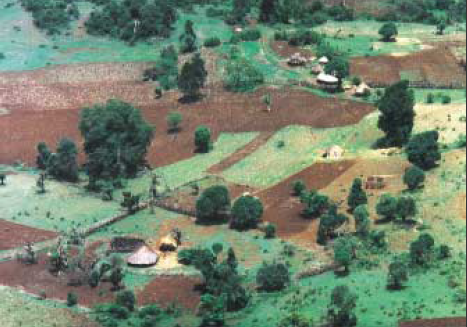women
AGROVOC URI: http://aims.fao.org/aos/agrovoc/c_8420
New NORAD report examines 'How to Support Women's Land Rights in Mozambique?'
The report discusses: How to Support Women’s Land Rights in Mozambique? – by drawing upon the experiences, approaches used, and lessons learnt through Norwegian support to four main organizations: Norwegian People’s Aid, FAO with the Mozambican Centre for Juridical and Judicial Training (CFJJ), CLUSA (Cooperative League of the United States), and the Mozambican feminist civil-society organisation Forum Mulher.
Report on ActionAid's Women's Land Rights Project in Guatemala, India, and Sierra Leone available online
The new baseline report on ActionAid's Women's Land Rights Project highlights the need for indigenous women in Guatemala, Dalit women in India, and rural women affected by HIV and AIDS in Sierra Leone to gain actual realisation of their land rights. The report suggests that through the implementation of land-related laws and policies that are progressive; the review or reform of retrogressive ones; and the enactment of missing gender-sensitive laws and/or policies, the tide could be turned on the enjoyment of women’s land rights.
Low Income Women: First Casualties of Green Economy Land Grab
[...] In our understanding of the green economy, one thing is clear: rural women have already faced eviction or exclusion from land ‘grabbed’ for powerful green agendas that are not their own. This is because the current political/economic paradigm ensures that the interests of corporate actors and powerful vested interests in the global and export economies in the productive capacity of land and water are protected while small farming communities producing for domestic markets are not.
Land in the right hands - Promoting women's rights to land in Kyrgyzstan and Tajikistan
Here it is an interesting publication from UN Women on the work done by the UN entity - and UNIFEM before its establishment in 2011 - to promote women's empowerment in Kyrgyzstan and Tajikistan through land rights.
Expert Group Meeting: Good practices in realizing women's rights to productive resources, with a focus on land
Papers and presentations from the OHCHR - UN Women expert group meeting on "Good practices in realizing women's rights to productive resources, with a focus on land" are now available.
ActionAid publication ‘Failing the rural poor: Aid, agriculture and the Millennium Development Goals’ highlights the particularly harsh effect of the current global food crisis on rural women
The 2008 report by ActionAid suggests that, since women and girls are overrepresented among poor and excluded people, the food crisis is having a particularly harsh impact on them. According to the FAO, even before the current crisis women made up 60% of the chronically hungry.
UNDP paper discusses ‘Decentralization and Women’s Rights to Land’
[adapted from UNDP] May, 2008- This UNDP discussion paper ‘Pro-Poor Land Tenure Reform and Democratic Governance’ provides a review of how different types of land tenure reform relate to decentralization and local governance, in theory and in practice. The discussion suggests that in order to create more democratic and transparent local management of land resources, special mechanisms to protect women against direct and indirect discrimination, as well as the establishment of local land committees and land tribunals for conflict resolution are needed.
GTZ's Land Use Planning Methods, Strategies and Tools
[adapted from GTZ] 1999- More than one hundred technical co-operation projects on three continents supported by the various technical departments of GTZ were involved in this discussion on Land Use Planning, paying specific attention to gender and women’s promotion through its pilot program “Gender and Women’s Promotion”.
New ActionAid report documents the adverse effect of land grabs on rural women
[adapted from ActionAid] October, 2012- The report states that the importance of land to rural women goes beyond growing food. Having secure access to, and independent control over, land can mean the difference between, on the one hand, enjoying rights such as education and freedom from violence or, on the other, continual subjugation in society. ActionAid view security of land tenure for impoverished rural communities as a fundamental component of dignified, sustainable development and a crucial step towards reducing poverty and reducing inequality.
Book 'Gender and Agrarian Reforms' highlights the gendered impacts of global agrarian reform
Through case studies from Asia, Africa, eastern Europe and Latin America, this book by Manchester Metropolitan University’s Susie Jacobs presents an overview of global gender and agrarian reform experiences. Recognising the widespread marginalisation of gender issues from policy and theoretical discussions of agrarian reform, Jacobs attempts to highlight the profound implications that redistribution of land has for women and for gender relations. The book compares land and agrarian reforms in which land has been redistributed collectively and to individual households.











